What You Need to Know About Wisdom Teeth
Chances are if you are aged between 17 and 25, your wisdom teeth are probably causing you some sort of pain.
These teenage years through to your mid 20’s can be a challenging time.
Your body is growing and changing rapidly.
While the experience can be daunting, it doesn’t have to be.
If you’ve started experiencing pain from your wisdom teeth or you’re a caring mum or dad searching for answers, keep reading to have those questions answered.
Jump to Contents
- Are Wisdom Teeth Painful to Remove?
- Are they Meant to Hurt?
- How are Wisdom Teeth Taken out?
- What Tools Does a Dentist Use?
- Why are Wisdom Teeth so much Trouble?
- Do Wisdom Teeth Keep Growing?
- What is Impaction?
- Wisdom Teeth Recovery
- Food that Helps with the Healing Process
- Bleeding: Day Two
- Teeth Alignment: What are the Facts
- Top 3 Removal Complications
- When to Remove Your Wisdom Teeth?
Are Wisdom Teeth Painful to Remove?
No, wisdom teeth are not painful to remove.
The problem is afterwards and the healing process.
Healing is due to the amount of trauma at the time of surgery, at the time of removal.
Less trauma = better healing.
Luckily technology such as advancements in laser has significantly improved the process.
I haven’t had surgery or any post-op complications since.
I also cuts down the healing time and pain by about a half.
Are they Meant to Hurt?
The reason why dentists take them out is usually that of pain or infection, not the teeth per se.
It’s the surrounding gum that’s the issue: not enough room for wisdom teeth to come through.
Evolution is slowly starting to phase out these third molars, i.e. Wisdom teeth.
Three reasons why removal is required:
- If it’s damaging another tooth
- The surrounding area is damaged also
- There are gum related issues
You probably realise by now that the main problem is wisdom teeth don’t have enough room.
So the gum is generally on top of the wisdom teeth. This means it forms a glove around the tooth.
All the bacteria gets in underneath the gum, and you have the gum between the top tooth and the lower tooth.
You almost have a gum sandwich as I put it.
The gum becomes swollen, painful, and you’re not able to put your teeth together.
And that could get worse over time.
How are Wisdom Teeth Taken out?
Very slowly and very carefully is the answer here!
There is a difference if you go to sleep and have a general anaesthetic.
Usually, the surgeon doesn’t have to worry so much about anything to do with your sensation or feeling.
They’re quite fast, and they can just literally chisel those wisdom teeth out of there.
But when your dentist removes your teeth from the dentist chair, being gentle is of the utmost importance.
A professional dentist will take their time, assessing your anxiety levels as they proceed.
What Tools Does a Dentist Use?
Tools??
I can hear the dentists already saying no, that’s not what they’re called!
Dentists use instruments, and it depends on the position where the wisdom teeth are.
If your tooth is wedged up against the tooth in front, dentists might have to cut the wisdom tooth in pieces.
I prefer to cut the tooth and not damage the surrounding area.
I have found the healing is a lot better afterwards.
But it does depend on the position of the wisdom tooth.
Should your wisdom tooth exist next to the tooth in front, usually, removing the gum around it is an option.
Why are Wisdom Teeth SO much Trouble?
Most kids have orthodontic treatment, and to prevent any likely hood of disruption; wisdom teeth are taken out and removed.
When orthodontic treatment is complete, teeth are perfect, and you don’t want anything to affect the position of the other teeth.
Top Three Reasons Why Wisdom Teeth are a Problem
- It can alter the effect of the other teeth in the arch
- Gum infections and surrounding tissue
- Not enough space
Wisdom teeth are like the garbage tip of the mouth.
If they’re not able to be cleaned, all the bacteria, the food, the debris can get caught underneath your wisdom teeth.
A Thing to Remember
As you age, everything becomes quite flaccid, especially your cheeks and you end up having a lot of problems down the track.
It’s so much easier to take teeth out when a person is young.
What is Impaction?
As you can see by the image above, 3rd molar grows with hardly any space, affecting the adjacent tooth.
If left untreated, pain is a certainty.
However, complications can and do exist.
Some of these include;
1. gingivitis inflammation
2. periodontal disease
But I brush correctly and consistently you say?
Unfortunately, space doesn’t permit you to brush correctly.
The difficulty in reaching those crucial areas in your mouth exposes you to the possibility of health risks.
Wisdom Teeth Recovery
I suggest you take at least 48 hours off afterwards so recovery can be a success.
My patients usually come in on a Friday, so they have the weekend off.
It is important not to have a stressful situation in the next 48 hours.
Make sure you can relax and stay in bed if you want to.
Read that book you’ve been putting off or watch that TV show you’ve missed.
Netflix can be an excellent way to soothe and pass that recovery time.
Food that Helps with the Healing Process
Well, it’s beforehand that makes a big difference.
Increasing your immunity helps with your healing.
Tips for this:
- Don’t have junk food but health food
- Reduce sugar intake
- Cut out Alcohol
Anything that affects your immunity will change your healing process.
Bleeding – Day Two
When we take the teeth out, we must set what’s called a blood clot.
The blood clot is the scaffolding of recovery.
So you need the scaffolding for the bone cells to come in through for the healing process.
If you lose your blood clot, the body doesn’t have anything to heal, and it can take up to six weeks for that socket to heal up.
Note: A socket is the exposed area that the tooth used to be.
The exposed bone is called a dry socket; very painful and can harbour infections.
Staying calm is important, and there are a few tips that will help with the recovery:
- Don’t do any exercise for at least 72 hours
- No alcohol (yes, I can hear the screams!)
- A very soft diet
- Don’t rinse vigorously
Teeth Alignment: What Are the Facts?
The principal opinion is that it does not take your teeth out of alignment.
A lot of people make the mistake they think that because they’ve got wisdom teeth their front teeth move.
It’s not possible for the power of the wisdom tooth in the back of your mouth to affect the teeth in the front.
So if you do have any crowding at all in the front of your mouth, the natural forces of the occlusion (contact of the teeth) are downwards and forwards.
Any crowding in the front of your mouth will get worse with time whether you have wisdom teeth or not.
Wisdom Teeth can Affect:
- Surrounding teeth
- Your Gums
- The bone
The back of the mouth is affected more than the front of the mouth.
There’s a nerve, called the mandibular (inferior alveolar) which runs entirely under all the teeth in the lower jaw.
If the roots of the wisdom teeth are anywhere near that nerve, it must be removed by a specialist.
Sometimes it’s a good idea even to have a CAT scan done so you can see a three-dimensional view of the relationship of the root to that nerve.
Anything that’s near the nerve could affect that nerve, and it could change the sensation to the lower part of your face, but especially to your lip.
Interesting Fact
The lower jaw is the hardest part of your entire body.
Dr V
#2 Dry Socket
We touched on this before, but it’s important to understand why it’s such a complication?
It is the loss of the blood clot, which can delay healing and cause infection.
Infection = Pain
That is why it is so crucial to take your time to recover.
The blood cot not only helps with healing, but it also prevents possible infection as the wound is secure and stable in this state.
If you experience pain that is out of the ordinary, contact your dentist as soon as possible.
#3 Inflammation
Inflammation can occur as your wisdom teeth grow, trying to push through and erupt.
The eruption is the term given by the dentist when your 3rd molars break the surface of your gums.
Swelling also becomes a problem just before this happens, adding to the pain and discomfort.
Once you have your wisdom teeth removed, inflammation can crop up as the area heals.
Infection at this time is a worry, and it is wise to rinse your mouth gently with warm salty water.
Doing so will aid your recovery but make sure the water isn’t too hot.
When to Remove Your Wisdom Teeth?
Removal usually occurs between 17 to 25 years of age.
I refer to it as “the wisdom teeth season” when the high school certificate finishes.
As they first come into view and are causing problems, there’s an influx of young adults wanting their wisdom teeth removed
Teenagers can be instructed by their orthodontist to remove these problematic teeth early.
From 25 years onwards, the concern is that wisdom teeth can damage or disrupt your other teeth or the surrounding tissues.
My Thoughts on Stitches
The technique that I use is where I cut your tooth into pieces.
It doesn’t matter if I dismantle the tooth, I have to take it out anyway.
So I try to minimise the trauma to the surrounding tissue, which in most cases I don’t use stitches.
I don’t like stitches because they collect plaque and debris. It can also cause inflammation.
Conclusion
Most adults at some point in their lives will have to have their wisdom teeth removed. It’s almost a certainty!
Only 2% of the population are lucky enough to go through life without growing these four problematic teeth.
Though with the right information and guidance, the trauma that you may endure won’t be as severe.
The 12 commonly asked questions above have been answered to help you or a loved one navigate this sometimes painful and personal journey.
Do you have a wisdom tooth related question? Leave a comment below
By Dr. V
Created at January 08, 2018, Updated at January 25, 2025
Sorry, the comment form is closed at this time.


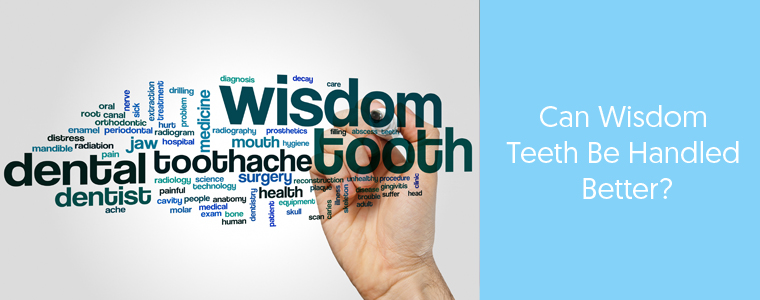
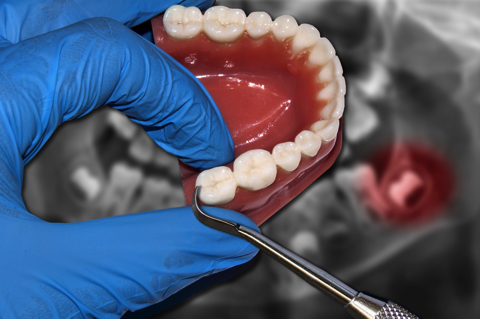



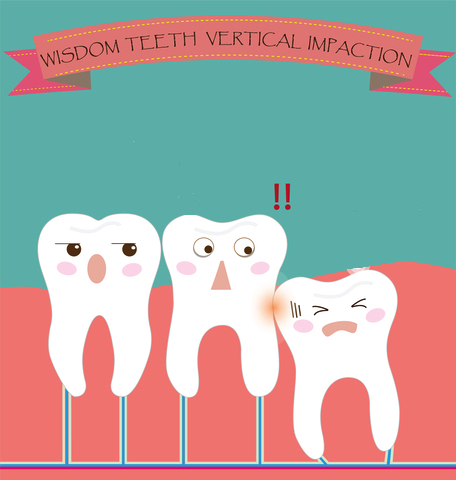





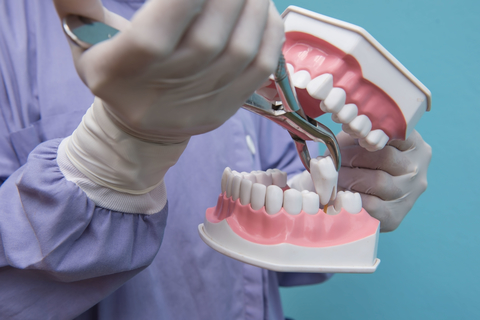
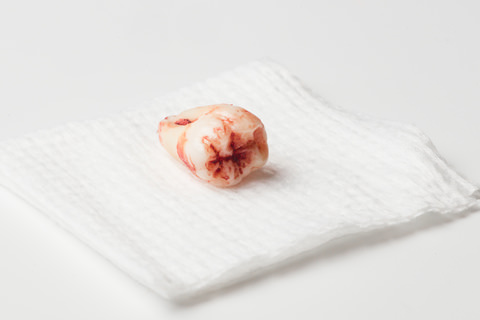
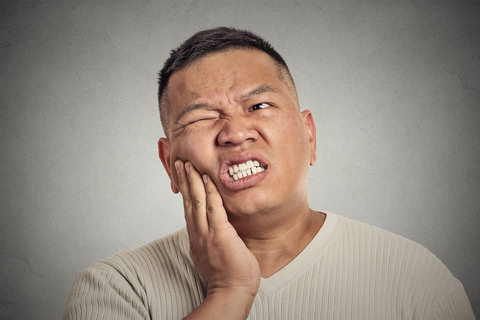

Brittney k7 years ago
My left bottom wisdom tooth is broken would the removal be more intense?
Dentalaware7 years ago
Hi Brittney, Thanks for your question.
Removal is dependent on access and the shape of your broken tooth. The access will really indicate the ease of the removal.
In many instances, we actually break the teeth or section the teeth in order to have an easier removal, thus less trauma overall.
Hope that helps, Dr V.